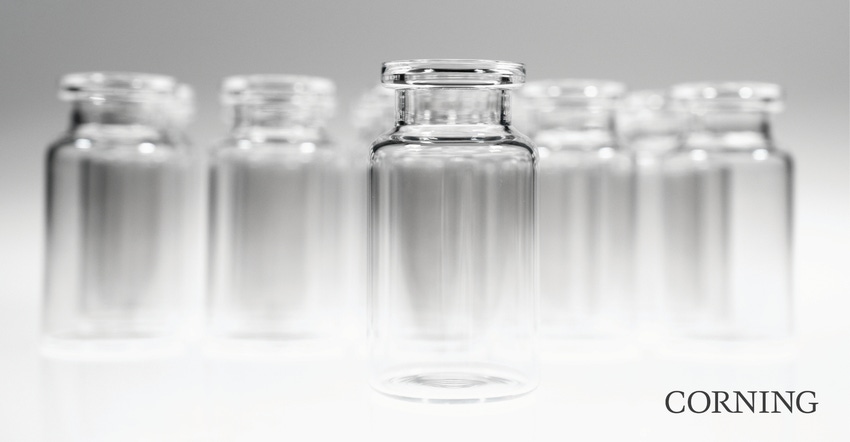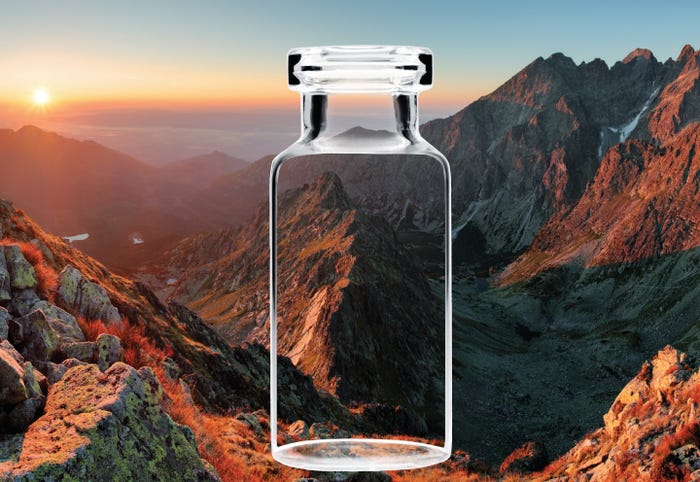New Pharmaceutical Vials Improve Filling-Line Efficiency and Further Sustainability Goals
Corning’s latest addition to its glass packaging portfolio speeds production by as much as 50% and reduces vial-manufacturing CO2 emissions by up to 30%.

Corning has introduced a new pharmaceutical vial that improves filling-line productivity while lowering CO2 emissions. The Viridian vial speeds filling-line processes, thereby allowing pharmaceutical manufacturers to deliver vaccines and other lifesaving treatments more quickly. Additionally, the vials use 20% less glass and are produced using 100% renewable energy (electricity consumption covered through a combination of renewable energy certificates [RECs] associated with on-site solar and unbundled market RECs).

The vials are made of type 1 borosilicate glass with a proprietary external polymer-based coating that reduces the coefficient of friction so they can be processed at high speeds. Ron Verkleeren, senior vice president and general manager of Corning Life Sciences, explains that this coating improves efficiency by as much as 50% because it reduces micro-stops in the filling line.
“Jams on filling lines are often related to friction: The coefficient of friction on a clean, freshly depyrogenated vial is very high,” he says. “So when you reduce that coefficient of friction, you enhance the ability of the fill and finish machine to produce vials at an optimum rate.”
Verkleeren describes the vial as a drop-in solution, allowing customers to easily adopt it without modifying their equipment or their fill and finish line.
On the sustainability front, the vial reduces CO2 emissions by up to 30% during the manufacturing process and uses 20% less material, resulting in less waste going to the landfill.
West Pharmaceutical Services is the exclusive distributor of Viridian vials.
About the Author(s)
You May Also Like




